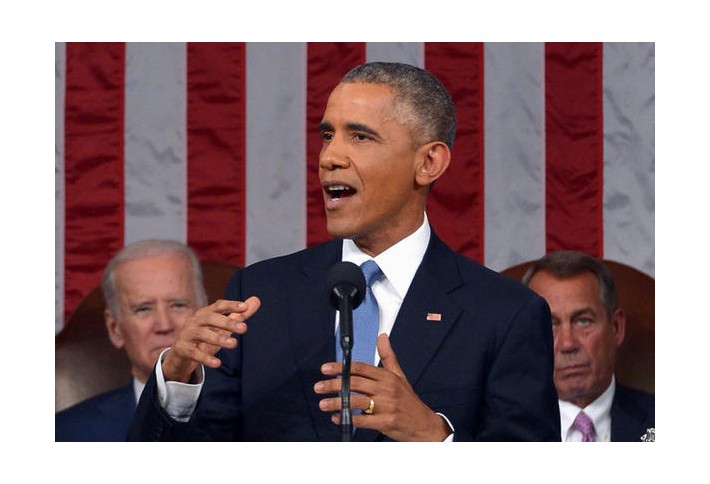State of the Union: Obama Comes Out Swinging, And Some Call It a Miss

President Obama laid out an ambitious—and some say far-fetched agenda—during last night's State of the Union address that included calls to raises taxes on businesses and the wealthy to fund expansive programs for the middle-class.
Specifically, the proposal would raise the top capital gain tax from 23.8% to 28%, seek a fee on financial institutions with more than $50B in assets and essentially nix a tax break for the rich who can hold investments until their deaths. The roughly $320B generated by those signature measures would fund Obama's $60B plan to eliminate community college tuition for millions of students, boost paid leave for workers and put in motion a raft of tax breaks for middle- and lower-income families.
Obama's defiant and supremely confident delivery delighted some staunch supporters but risked further alienating Republicans who just two months ago gained control of both houses of congress. Some read the GOP's midterm victory as a condemnation of the Obama agenda and questioned Obama's at times cocky posture last night. In fact, Republican congress leaders had already balked at the tax increases and community college initiatives when they were announced over the long weekend.
Political journalists also questioned the wisdom of Obama's bold, and improbable, initiatives. "Watching an emboldened Mr. Obama, it would have been easy to forget that he was standing there just two months after the biggest electoral repudiation of his presidency," Peter Baker wrote in the New York Times. "Indeed, with economic indicators on the rise and his own poll numbers rebounding slightly, he made no reference at all to the midterm elections, offered no concessions about his own leadership and proposed no compromises to accommodate the political reality."
The cynical take on Obama's address was that it merely meant to set Republicans as the "party of no" by whetting Americans' appetites for legislation with a miniscule chance of passing. "There's a student-body presidency campaign component to this," Republican operative Steve Schmidt said. "You would expect he would gain the political maturity to come into congress with an open hand instead of a closed fist."
Indeed, there were grumblings that by announcing two veto threats—to new abortion limits and the Keystone XL oil pipeline—hours before the State of the Union the White House had risked identifying Democrats with the word "no" just as much as their rivals across the aisle.
